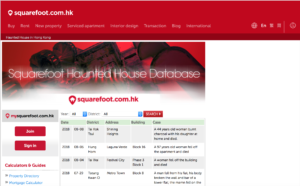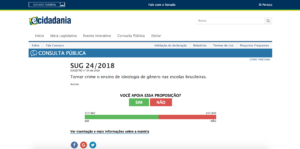
One thing often commented about Hong Kong is how the modern and the traditional coexist harmoniously. Walking around there, between steel and glass skyscrapers you will inevitably come across at least one colorful and fragrant temple, and it will not seem out of place. That same grace manifests itself in many ways, and for this post I want to focus on the mix of traditional beliefs with digital technologies and the reproduction of inequalities.
Hong Kong-made tech are usually created for financial purposes, which is unsurprising given the region’s location and History. Fintech can seem very acultural in a sense that, being fundamental for globalized markets, it tends to be somewhat homogeneous around the world. But a much more local character shows up in real estate uses of technology.
A bit of background info here: Hong Kong is one of the most expensive real estate markets in the world. While that is often attributed to a chronic shortage of land (a very disputed and evergreen subject), you cannot ignore the fact that this is also one of the most unequal societies in the world. While a mansion at The Peak has been sold for £338 million earlier this year, thousands of people remain homeless, spend their nights in 24-hours McDonald’s restaurants or live in awful conditions in cage/coffin apartments (although Beijing representatives may mock that). In such a competitive market, even the most precarious spaces come with high price tags, and people are always looking for opportunities for bargaining.
Another important contextual information is that the people of Hong Kong are very superstitious. Buddhism, Taoism, Confucianism, Christianism and other religions and philosophies all melt together and inform spiritual and mundane practices in Hong Kong. How seriously? Feng Shui shapes the very skyline of the city.
Superstitious people looking for a place to live in HK, then, have to take auspiciousness into consideration. At the top of the list of concerns is avoiding hung jaak – Cantonese for ghost apartment: homes inside which people have died, especially in cases of untimely deaths, carry a lot of bad energy. Before the internet, potential residents would have to trust on a real estate agent’s knowledge and honesty, because there is no official listing of that kind of data. But clever technologists saw a business opportunity in manually gathering and providing such information.

For at least six years, Squarefoot, an international “property portal”, has kept a page dedicated to the listing of indoors deaths since 1977, with varying levels of detail. A most widely publicised tool came from another company, inspired by augmented reality game Pokémon GO: Spacious.hk made the headlines in 2016 by timely creating and marketing a new feature in its mobile app, which allowed users to check for haunted properties by aiming the camera at a building. If there was any such occurrences there, a ghost should appear on the screen. Even before that tool was developed, the site of the company already had a layer on its map for checking that.

But the main reason why those services are good business is not that they help believers to avoid the haunted properties, but the exact opposite. Because those beliefs are so ingrained in Hong Kong (and other Chinese) society, prices of those homes can plunge around 10 to 50%, thus attracting non-believers.
In practice, that means any superstitious person would have to consider how much they can pay to live in accordance with their values. While neither company knows who actually gets those places, they seem to believe their services cater to millennials and expats, as those are the segments of population least prone to holding traditional Chinese beliefs. Because of that, this form of house hunting ends up reproducing inequalities present in the society, notedly the privilege of expats: usually already richer then locals (and immigrants), they get to save handsomely with hung jaak.







